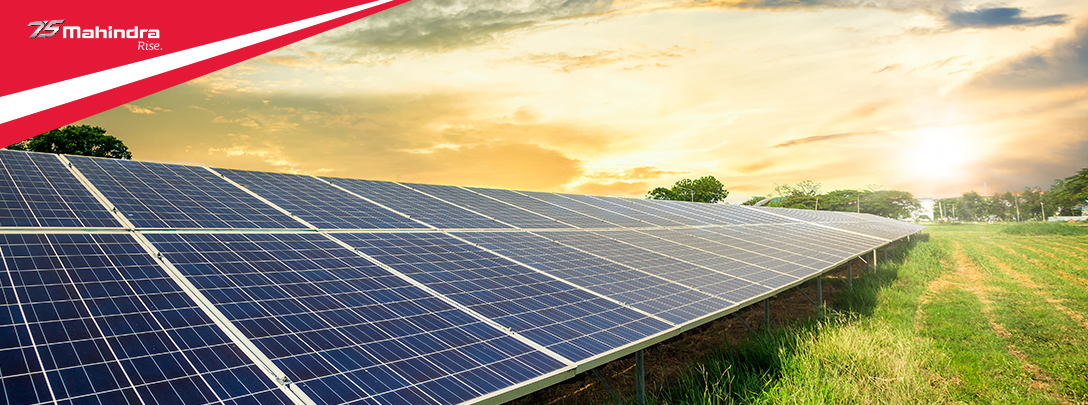Mahindra & Mahindra Limited (M&M) is ushering in an age of solar power with the adoption of a 58 MWp captive solar plant located in Parbhani in the Marthwada region of Maharashtra, which will be functional from 2022. Expected to generate 100 million units of power, this plant is the company’s most recent step in the direction of achieving carbon neutrality by 2040 and science-based targets by mitigating 79,000 tons of annual carbon emission, which is equivalent to nurturing 3.7 million trees a year. It is also enough to supply 20,650 Indian households with power annually.
M&M is looking at quadrupling its power share from 12 per cent to 56 per cent across Maharashtra with this project, including Mumbai, Nashik, Pune, Igatpuri and Nagpur, while also helping it protect and revive natural ecosystems. ReNew Sunlight Energy Private Limited, a 100 percent subsidiary of ReNew Power Private Limited, will own and operate the plant once it is built, for a tenure of 25 years.
Elaborating on the announcement, Veejay Nakra, Chief Executive Officer, Automotive Division, M&M Ltd., stated, “At Mahindra, sustainability is a way of life and a key measure of our success. We are committed to achieving our target of carbon neutrality by 2040 and are well on the way to reduce carbon emissions across our manufacturing operations. This new captive solar plant will further our sustainability journey and make a significant contribution in protecting the environment and contributing to the Government of India’s solar power target of achieving 175 GW by 2022.”
Mahindra’s journey to going carbon neutral and using renewable energy started with its first 0.06 MW plant in Igatpuri. The company has sustainability embedded in its DNA, and is committed to achieving this and more, one step at a time. A globally recognised name, Mahindra isalso consistently doubling its energy productivity through the EP 100 initiative and setting precedence for other companies with its goal to go ‘Zero Waste’ by 2030. Under the Hariyali Program, it also plants five million trees a year, having successfully added 19 million trees to the global fauna to date.
You can also share your thoughts in the Comments section below!




